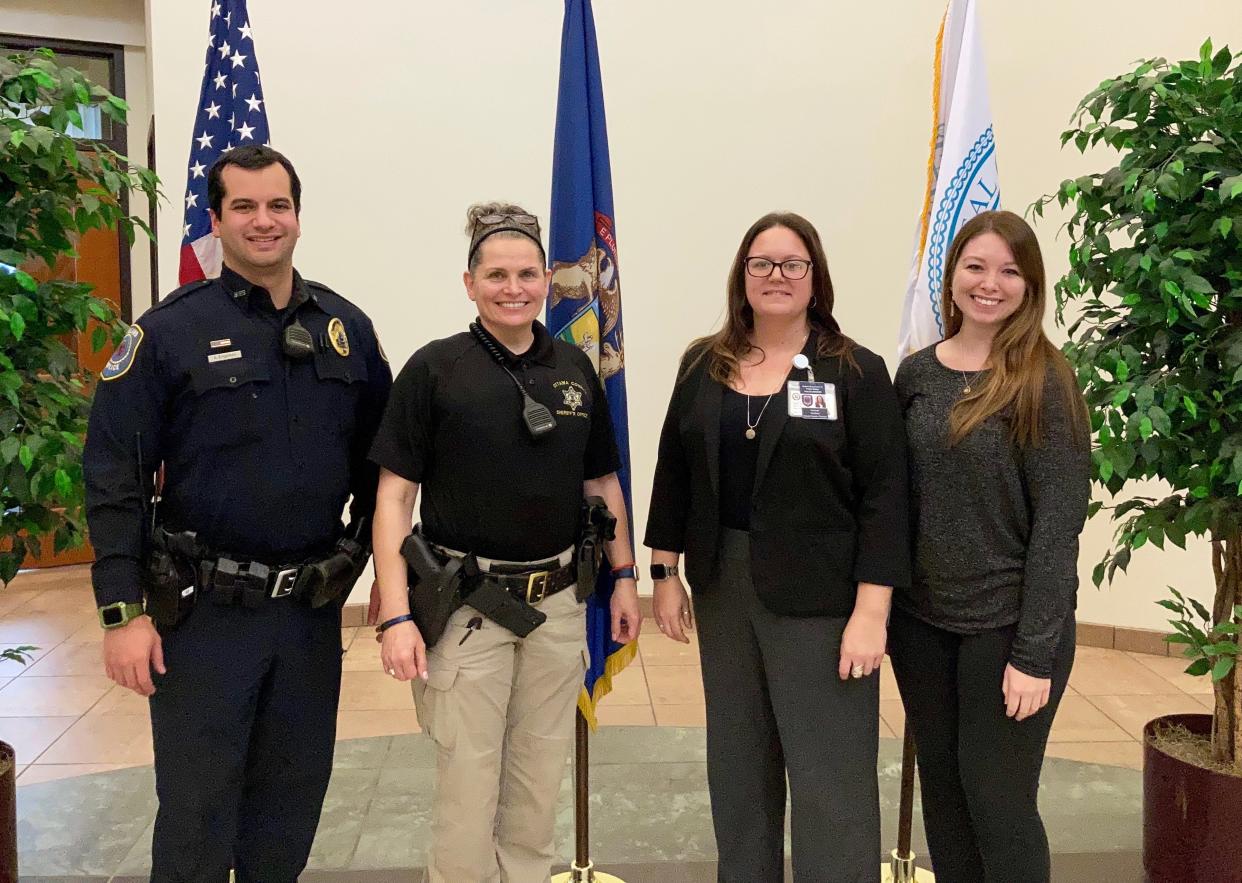Social worker-police pairing to respond to mental health calls a success so far in Ottawa County

WEST OLIVE — A relatively new program that sends social workers along with police to respond to incidents involving mental health and other complex issues is being launched into the future with a grant from the U.S. Bureau of Justice Administration.
The program is a partnership between the Holland Department of Public Safety, Ottawa County Sheriff's Office and Ottawa County Community Mental Health. Zeeland Police Department and Grand Haven Department of Public Safety also participate on a part-time, as-needed basis.
The Crisis Intervention Team responds to incidents involving behavioral and mental health, including mental health crises such as suicidal people. The social worker and police officer act as a team, the police addressing any safety or legal issues and the social worker identifying what kind of help the person needs.
The program brings the expertise of trained behavioral health professionals in to help resolve complex situations for which law enforcement officers may not have adequate training.
Holland and Ottawa County each have one full-time officer assigned to CIT who is paired with a social worker from OCCMH.
More: New initiative pairs police with counselors for crisis calls
More: Ottawa County detectives identify Jane Doe, mystery since 1994, as Minnesota woman
More: Mental health continues to be top concern after Ottawa County’s 2021 Youth Assessment Survey
Last week, the Ottawa County Board of Commissioners authorized a budget amendment allowing OCSO to use the $549,000 BJA grant to fund the salary and benefits of Ottawa County's CIT coordinator for the next three years. The funds will also pay for training in mental health response for all law enforcement staff and emergency dispatchers.
Ottawa County Sheriff Steve Kempker called the CIT "one of the best programs I've seen in my career in law enforcement."
"This has been so successful that we'd like to expand this program," Kempker said.
Beyond mental and behavioral issues, CIT can also help resolve domestic disputes, parent-child issues and unmet needs generally.
For example: police are called to deal with a squatter. Instead of issuing a trespassing charge, the CIT might be able to help the person find and apply for housing.
"The beauty of the program is the social workers have the time to really sit down with people, provide resources for them and link them up to any services they might need, whether it's mental health or housing," said Lynn Doyle, director of OCCMH. "Lots of other communities have used a similar model and they've also had really good results."
The program is described by law enforcement as a win-win for residents and for the criminal justice system.
Subscribe: Get unlimited access to our local coverage
Though Kempker stressed police continue to hold people responsible for crimes they commit, if there's a mental health issue causing the criminal behavior that has gone unaddressed, getting help will prevent future interactions with law enforcement, a better outcome for the person and saving police and the courts time and resources. Ideally, people suffering from a mental health crisis will be diverted to the help they need, rather than put in jail.
Doyle said CMH is hoping to use grant money it received from the Substance Abuse and Mental Health Services Administration to hire more social workers for a second shift of CIT, as the team is currently only available for crisis response during daytime hours.
When mental health calls come in after hours, the responding officer will ask CIT to follow up the next day.
"We are seeing a lot of people in our jails with mental health issues," Doyle said. "Quite a bit of law enforcement officers' time is spent dealing with mental health issues on the calls they go on, so some really good intervention hopefully will reduce those calls law enforcement are going out on, and ideally people won't be going to jail but will be getting treatment for their mental health issues."
— Contact reporter Carolyn Muyskens at cmuyskens@hollandsentinel.com and follow her on Twitter at @cjmuyskens.
This article originally appeared on The Holland Sentinel: Social worker-police pairing a success so far in Ottawa County

